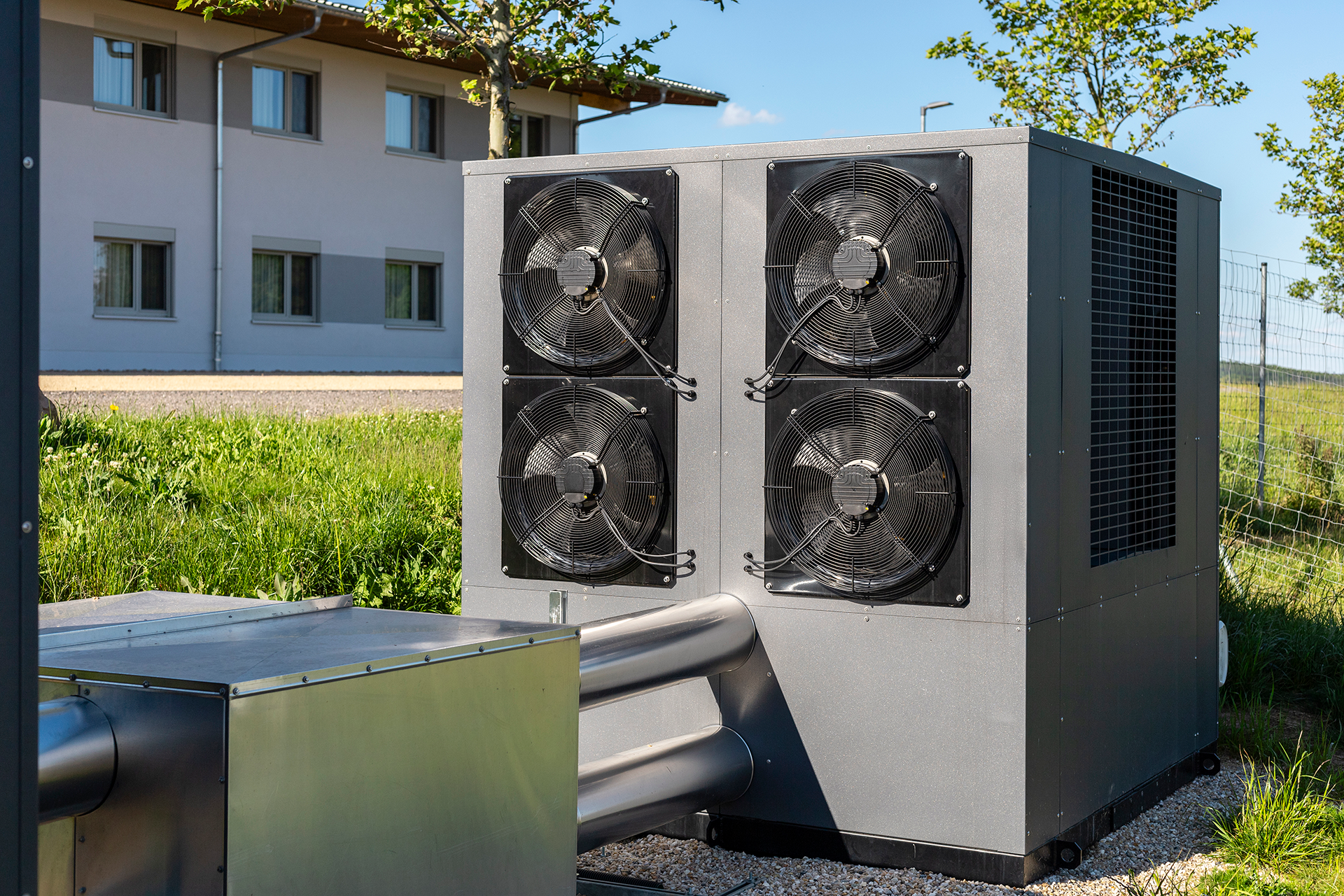Running a sheet metal contracting business means juggling many risks-from costly equipment damage to liability claims. Without the right insurance, a single accident or lawsuit can quickly spiral into a financial disaster. Understanding the types of coverage available and their costs is essential for protecting your business and staying compliant with industry standards.
In 2025, the insurance landscape for construction-related trades like sheet metal contractors reflects rising costs and evolving risks. For example, the average cost of contractor’s tools and equipment insurance sits at $14 per month, or $169 annually, while professional liability insurance averages $74 monthly, or $886 yearly. These figures highlight the importance of budgeting for comprehensive coverage that fits your operation’s unique needs. For more detailed cost insights, Insureon offers a thorough breakdown of insurance expenses tailored to sheet metal contractors.
Key Insurance Coverages for Sheet Metal Contractors
Sheet metal contractors face a variety of risks—from on-site injuries to property damage and equipment loss. Several insurance policies are essential to cover these exposures.
General Liability Insurance
This coverage protects against third-party claims for bodily injury, property damage, and personal injury. For instance, if a passerby is injured by falling debris or your crew accidentally damages a client’s property, general liability insurance helps cover legal fees and settlements.
Given the physical nature of sheet metal work, this insurance is often the first line of defense against costly claims. It not only provides financial protection but also enhances your business's credibility, as clients often prefer contractors who are adequately insured. Additionally, many contracts require proof of general liability coverage before work can commence, making it a vital component of your business operations.
Professional Liability Insurance
Also known as errors and omissions insurance, professional liability covers claims related to design errors, faulty workmanship, or failure to meet contractual obligations. In 2025, the average cost for professional liability insurance in construction is $74 per month or $886 annually. This coverage is crucial when your work involves engineering or consulting services tied to sheet metal projects.
In an industry where precision is paramount, even minor mistakes can lead to significant financial repercussions. Professional liability insurance not only protects against claims but also helps in maintaining a positive relationship with clients by demonstrating a commitment to quality and accountability. Furthermore, as projects become increasingly complex, having this insurance can provide peace of mind, allowing contractors to focus on delivering exceptional results without the constant worry of potential legal issues.
Tools and Equipment Insurance
Sheet metal contractors rely heavily on specialized tools and machinery. Tools and equipment insurance protects these assets against theft, loss, or damage. The average monthly cost is about $14, making it an affordable way to safeguard your investment and avoid costly replacements.
Given the significant investment in tools and equipment, this insurance is not just a safety net; it is a strategic necessity. Many contractors find themselves in precarious situations when tools are lost or damaged, leading to project delays and increased costs. By ensuring that your tools are covered, you can quickly replace or repair them, minimizing downtime and keeping projects on schedule. Additionally, some policies may offer coverage for tools stored off-site, providing further protection against theft or damage while in transit or at job sites.
Builder’s Risk Insurance
When working on construction sites, builder’s risk insurance covers materials, supplies, and structures under construction. This policy is particularly important for sheet metal contractors involved in large projects. The average cost is $105 per month or $1,259 annually, reflecting the high value of assets at risk during construction phases.
Builder’s risk insurance not only protects against common risks like fire, theft, and vandalism but also covers weather-related damages, which can be particularly relevant in certain regions. This type of coverage is essential for contractors who want to ensure that their investments are protected throughout the construction process. Moreover, it can also cover the costs of labor to repair or replace damaged materials, making it a comprehensive solution for safeguarding your projects and ensuring financial stability during construction.
Commercial Umbrella Insurance
This policy provides additional liability coverage beyond the limits of your general liability and other policies. With an average cost of $81 per month or $977 per year, umbrella insurance offers a safety net against catastrophic claims that could otherwise bankrupt your business.
In an unpredictable industry like construction, having commercial umbrella insurance can be a game-changer. It acts as an extra layer of protection, ensuring that even in the case of severe incidents—such as major accidents or extensive property damage—your business remains financially secure. This type of coverage is particularly important for contractors who take on larger projects or work with high-profile clients, as the potential for significant claims increases. Additionally, umbrella insurance can cover claims that may not be included in your primary policies, providing a broader safety net for your operations.
HVACInsure is fully licensed and permitted to sell contractor and commercial insurance in USA.
We proudly serve clients throughout United States and maintain partnerships with local insurance carriers to ensure HVAC professionals receive compliant, affordable, and comprehensive coverage that meets project and regulatory requirements.
Rising Costs and Market Trends in 2025
Insurance premiums for construction businesses, including sheet metal contractors, have increased notably in 2025. Overall construction insurance premiums rose by 9.3%, driven by wage inflation, material price volatility, and a higher frequency of claims. This trend means budgeting for insurance is more critical than ever. As contractors navigate these rising costs, they must also consider the impact of inflation on their overall project budgets, which can lead to tighter profit margins and necessitate more strategic planning in project bids.
Workers’ compensation premiums also climbed 7.1%, reflecting ongoing injury rates and labor shortages in skilled trades. For sheet metal contractors, where on-site hazards are common, this increase underscores the importance of workplace safety programs to control costs. Investing in comprehensive training and safety equipment not only helps mitigate risks but can also lead to lower premiums over time, as insurers often reward proactive safety measures with discounts. Furthermore, adopting new technologies, such as wearable safety devices, can enhance monitoring and compliance, further reducing the likelihood of accidents.
Cyber insurance premiums surged by 16.2% as construction firms face growing threats from ransomware and attacks targeting infrastructure. While it may seem unrelated, sheet metal contractors increasingly rely on digital tools and project management software, making cyber coverage a smart consideration. The shift towards digitalization in the construction industry has made it essential for contractors to not only secure their physical assets but also their digital infrastructure. As more companies adopt cloud-based solutions for project management and communication, the risk of data breaches increases, highlighting the need for robust cybersecurity measures alongside traditional insurance.
Inland marine insurance, which covers mobile equipment and tools in transit or on-site, rose by 8%. This is particularly relevant for sheet metal contractors who transport expensive machinery between jobs. Staying updated on these market shifts helps contractors plan their insurance budgets effectively. Additionally, the rise in theft and vandalism of construction equipment has prompted many contractors to reassess their security protocols, such as investing in GPS tracking systems and enhanced job site security measures. For a detailed look at these trends,
CoinLaw provides comprehensive industry statistics. Understanding these dynamics not only aids in financial planning but also empowers contractors to make informed decisions that can safeguard their businesses in an increasingly unpredictable market.

Safety and Sustainability Impact on Insurance
Insurance providers are increasingly rewarding contractors who demonstrate strong safety practices and environmental responsibility. In 2025, nearly one-quarter of insurers require safety certifications before issuing coverage. This means sheet metal contractors who invest in training and safety programs can improve their chances of approval and potentially lower premiums. This trend not only incentivizes safer work environments but also fosters a culture of accountability among contractors, encouraging them to prioritize the well-being of their workforce and adhere to industry regulations.
Additionally, 31% of insurers now offer premium discounts for adopting sustainable and ESG-compliant building practices. For sheet metal contractors, this could mean using recycled materials or energy-efficient installation methods, aligning with broader construction trends toward sustainability. As the construction industry faces increasing scrutiny over its environmental impact, contractors who proactively embrace green practices may not only reduce costs but also enhance their marketability, attracting clients who prioritize sustainability in their projects.
Technology also plays a growing role. About 44% of insurers use Internet of Things (IoT) data to analyze claims and improve underwriting accuracy. Contractors who leverage smart tools to monitor equipment and jobsite conditions may benefit from more favorable insurance terms. The integration of technology extends beyond just monitoring; it includes predictive analytics that can forecast potential risks, allowing contractors to take preventative measures before issues arise. This proactive approach not only safeguards the jobsite but also strengthens the contractor's relationship with insurers by demonstrating a commitment to risk management.
Moreover, the rise of digital platforms for insurance applications and claims processing has streamlined interactions between contractors and insurers. With the ability to submit documentation electronically and track claims in real-time, contractors can respond more swiftly to requests and resolve issues more efficiently. This digital transformation enhances transparency and fosters trust, as both parties can access up-to-date information regarding coverage and claims status. As the insurance landscape evolves, those who adapt to these technological advancements will likely find themselves at a competitive advantage, positioning their businesses for long-term success.
Choosing the Right Insurance for Your Sheet Metal Business
Every sheet metal contractor’s insurance needs differ based on project size, location, and services offered. Here are some tips to help select the right coverage:
- Assess Your Risks: Identify your biggest exposures, whether it’s equipment loss, liability from installation errors, or on-site injuries.
- Bundle Policies: Many insurers offer package deals combining general liability, tools coverage, and workers’ comp, often at a better rate.
- Maintain Safety Standards: Investing in safety training and certifications can reduce premiums and claims.
- Consider Project-Specific Policies: Builder’s risk insurance is essential for large construction projects involving sheet metal work.
- Review Cyber Risks: Don’t overlook cyber insurance if your business relies on digital systems for contracts, billing, or project management.
Understanding the average costs can help you plan your budget. For example, tools and equipment insurance averages $169 annually, while professional liability can approach $886 per year. Knowing these benchmarks helps avoid surprises when shopping for coverage.
Additionally, it’s crucial to stay informed about the evolving landscape of insurance regulations and requirements specific to the sheet metal industry. As new technologies and methodologies emerge, insurers may adjust their policies to reflect these changes, potentially impacting your coverage options and costs. Regularly consulting with an insurance broker who specializes in construction can provide insights into any new products or endorsements that could better protect your business.
Moreover, networking with other contractors in the sheet metal field can yield valuable information about their experiences with different insurance providers. Peer recommendations can guide you toward companies that offer not only competitive rates but also exceptional customer service and claims support. Engaging in industry forums or local trade associations can help you stay connected and informed, ensuring that you make the most educated decisions regarding your insurance needs.

How Insurance Supports Business Growth
Insurance is more than just a safety net-it’s a business enabler. With the construction insurance market growing at 6.9% annually and expected to reach $19.3 billion, contractors who maintain proper coverage position themselves to bid on larger projects and meet client requirements.
Many clients and general contractors now require proof of insurance before awarding contracts. Having comprehensive policies in place signals professionalism and reliability, giving sheet metal contractors a competitive edge in a fragmented industry with over 22,000 businesses nationwide.
Moreover, insurance helps manage cash flow by covering unexpected costs that could otherwise halt operations. For example, replacing tools after theft or damage can be expensive, but insurance smooths out these financial shocks.
In addition to safeguarding assets, insurance can also enhance a contractor's reputation. When businesses are insured, they demonstrate a commitment to risk management, which can attract clients who prioritize working with responsible partners. This reputation for reliability can lead to repeat business and referrals, essential components for sustainable growth in a competitive market. Furthermore, many insurance providers offer resources and support for risk assessment and management, allowing contractors to identify potential hazards and implement preventative measures. This proactive approach not only minimizes the likelihood of claims but also fosters a culture of safety within the organization.
Additionally, the right insurance policies can open doors to new opportunities. For instance, specialized coverage options, such as environmental liability or professional indemnity, can enable contractors to take on projects in niche markets that require specific expertise or compliance with stringent regulations. By diversifying their service offerings through adequate insurance coverage, contractors can tap into emerging sectors, such as renewable energy or sustainable construction, thereby driving growth and innovation within their businesses. This adaptability is crucial in an ever-evolving industry landscape where client needs and regulatory requirements are constantly changing.
Frequently Asked Questions
Q: What insurance is mandatory for sheet metal contractors?
A: Workers’ compensation is typically required by law, and general liability insurance is strongly recommended for all contractors.
Q: How much does tools and equipment insurance cost on average?
A: In 2025, the average cost is about $14 per month or $169 annually.
Q: Can safety certifications lower my insurance premiums?
A: Yes. About 24% of insurers require safety certifications, and many offer discounts for strong safety records.
Q: Is cyber insurance necessary for a sheet metal contracting business?
A: If your business relies on digital tools or stores sensitive client information, cyber insurance is a wise investment given rising cyber threats.
Q: What is builder’s risk insurance and do I need it?
A: Builder’s risk covers materials and structures under construction. It’s essential if you work on large projects where you handle or install sheet metal components.
Q: How can I reduce my insurance costs?
A: Maintaining safety programs, bundling policies, and adopting sustainable practices can help lower premiums.

About The Author: James Jenkins
I’m James Jenkins, Founder and CEO of HVACInsure. I work with HVAC contractors and related trades to simplify insurance and make coverage easier to understand. Every day, I help business owners secure reliable protection, issue certificates quickly, and stay compliant so their teams can keep working safely and confidently.
Recognized by National HVAC Trade Associations
These trusted organizations set best practices and standards that carriers rely on when underwriting HVAC risks.
Membership signifies adherence to HVAC industry standards and contractor best practices.
Reviews
HVAC Contractor Reviews of
We're trusted by HVAC contractors throughout the US. Check out what our clients have to say about HVACInsure:
Coverage for Crews, Vehicles, and Tools
Insurance for HVAC Contractors
We provide business insurance designed for HVAC contractors. These policies protect your crew, vehicles, and tools while helping you meet project requirements. Every policy is explained clearly and delivered quickly so you can work without delays.
Resources
Insurance Tips for HVAC Contractors
Our blog is built for contractors who want fast answers. Each article covers common questions and risks in under five minutes of reading.
Frequently Asked Question
Common HVAC Contractor Insurance Questions
These FAQs address common contractor questions. As HVACInsure grows, we will update this section with real client experiences and answers.
Why should an HVAC contractor use HVACInsure instead of a general agency?
Specialists understand jobsite requirements, certificate wording, and common endorsements for HVAC work. You get cleaner paperwork, faster approvals, and coverage that fits how your crews operate.
This reduces delays at the gate, avoids gaps, and helps you pass compliance checks the first time.
How fast can I get a Certificate of Insurance (COI)?
Most standard COIs are issued the same business day after binding or updates. If you need additional insured, primary/non-contributory, or waiver language, we prepare it correctly the first time.
Our goal is simple: get your crew on site without paperwork delays.
What coverages do HVAC contractors usually need?
Core policies include General Liability, Commercial Auto, Workers’ Comp, Property/Tools, Inland Marine, and Umbrella. Many projects require higher limits and specific endorsements.
We align your coverage with contract terms and explain each choice in plain language.
Will my tools and scheduled equipment be covered in vans or on jobsites?
Yes. Inland Marine (tools and equipment) can cover items in transit, stored in vehicles, or staged on site.
High-value items can be scheduled, and limits can match your daily field use to keep work moving.
Can I lower my premium without weakening protection?
Often, yes. Clean driver lists, accurate payrolls, safety programs, and bundling policies can help.
We review your profile, request carrier credits, and adjust limits and deductibles to control cost while meeting project requirements.
What should I do after a loss?
Contact us right away so we can file with the correct carrier and set expectations. We guide documentation, next steps, and follow-ups until closure.
Fast reporting and clear records help resolve claims sooner and keep your team focused on work.

Still have questions?
Can’t find the answer you’re looking for? Please chat to our friendly team!
Contact Us








